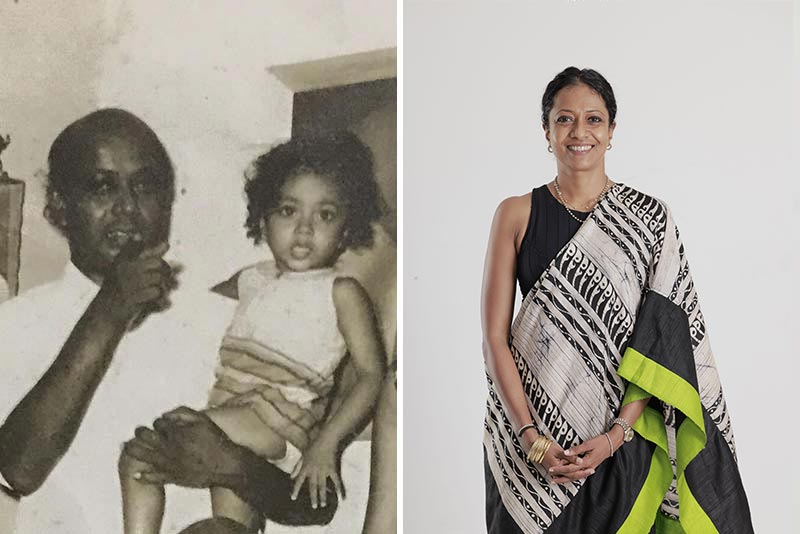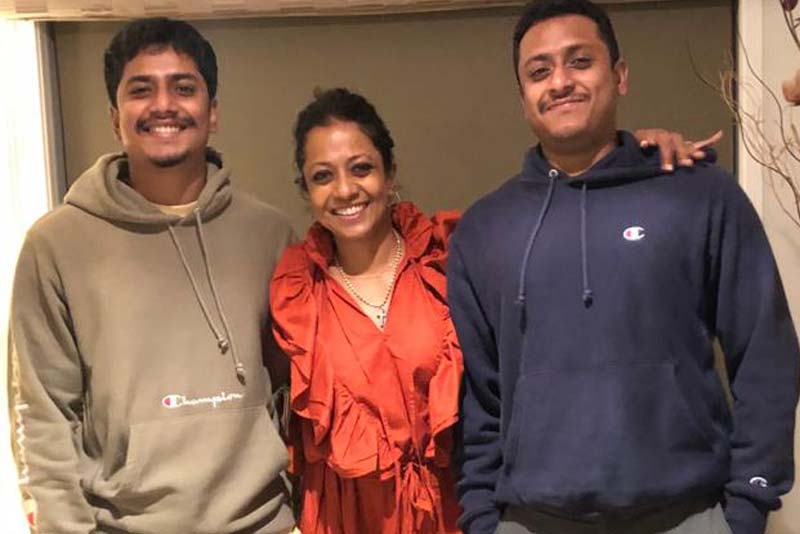By Daisy Serem
As a young girl, Kasturi Chellaraja Wilson never imagined she would one day head one of Sri Lanka’s leading companies, Hemas Holdings PLC, as its first female chief executive officer. From a humble background in Colombo, Wilson overcame societal biases along the way, applying the best of herself to every role in her career, including stints in the national women’s basketball and netball teams. Today, she is a trailblazing business leader determined to help more women climb the corporate ladder. Wilson spoke to IFC Insights about this year’s International Women’s Day theme of embracing equity and what it means to her.
You have had an illustrious career as a successful business leader, rising to be the first female group CEO of a publicly traded conglomerate in Sri Lanka. What were the defining moments that shaped your career?
I am the youngest in a family of two daughters. I didn't come from an affluent family, but my parents encouraged us to pursue our interests — without limiting ourselves to traditional gender roles. So, I grew up as a free-spirited and street-smart kid. I married at 22, and after I became pregnant, I thought my career would end. But a considerate boss persuaded me not to resign and permitted me to work part time. Even after I had my children, they allowed me to work from home because I didn’t want to compromise on being a mother.
At 29, I became a single mother and my career trajectory pivoted. It all changed because I needed to be able to financially provide for my children and give them a better future. I became even more driven to succeed which opened more leadership opportunities. In each job interview, I would say “I’m a mum first and my kids are the most important, but I also bring so much to the table.” In 2002, I joined Hemas Group as finance director of the leisure sector, and because of that statement I made at recruitment, they knew I was determined and focused. I was never subject to any biases within the organization.

Kasturi Wilson as a young girl with her father. She says her upbringing shaped her career and the leader she is today. Photo: Courtesy of Kasturi Chellaraja Wilson
You received support throughout your career. Is this a reflection of equity in the workplace?
I wouldn't be the CEO of my firm today without equity. The term equity considers each person to be unique, not only at the individual level but also their circumstances.
How do you allow and support employees to flourish in their uniqueness? My organization had the answer — it allowed me to be the best version of myself. Within eight years of joining the company, I was heading transportation, logistics, and maritime services — a male-dominated business. I didn’t face bias in the company — that’s how I was able to become CEO. The organization looked at me as a skilled individual and not just as a woman. I didn’t feel the need to apologize for being a woman or a single mother.
Was it a challenge fitting into male-dominated spaces and taking on leadership roles?
There were moments I thought to myself that I don't present the way the suited guy presents. I think differently. I talk differently. I'm emotional. Should I try to be more like a man? Eventually, I decided to be myself because it serves me and everyone else better to be oneself. You cannot be somebody else. So, I became comfortable being myself.
What I brought to the table was my leadership, getting the best out of the people around me, and being able to give them clarity of thought. I am known to be a tough and kind boss. I wear all those labels with pride because that's who I am.
For many women, growing their careers and occupying leadership roles comes with many challenges, including facing discrimination, cultural barriers, and lack of childcare support. What do we need to do to help women overcome these challenges?
In my culture, women are brought up to look after their home, children, parents, and in-laws. However, men are raised to think they are successful if they have a good job, an official title, a car, and money. How many of us look up to a guy who is managing the household, including cooking and cleaning, while the wife is working? Until we have addressed these culturally embedded biases, the society will not progress.
At Hemas, we are constantly looking at female talent that can often be overlooked, figuring out where there is potential and how we can support these women in climbing the ladder. We also have policies that allow women to work from home and offer extended maternity leave.
However, to support women to remain in the workforce, we also need to encourage men to play an active role in childcare. We encourage inclusive parenting, so young male executives and leaders can go home to take care of their kids — and that's an amazing thing. This gives women the freedom to take care of themselves, work if they have to, or take time off. It's that whole family nucleus that we are trying to change from within.

Kasturi Wilson and her two sons, Amrith Wilson (left) and Ashvindh Wilson (right). Photo: Courtesy of Kasturi Chellaraja Wilson
The world is facing compounding crises that are not only slowing economic growth but could also impede progress on gender parity. How can the private sector and financial institutions ensure women are not left behind?
In Sri Lanka people are facing economic hardship. Our inflation is around 60 percent and essentials like fuel, electricity, and water are repriced at market rate. This is causing food insecurity, leading to child malnutrition and school dropouts. Traditionally, in our region, women bear economic hardships without complaining. They become the custodians of the family — sacrificing meals or taking on multiple jobs to make ends meet.
We must help women counter this crisis by offering them opportunities to grow businesses and boost livelihoods. Hemas is starting to pilot an initiative to support grassroot level entrepreneurs where we give women our products and empower them with capital and skills to be our door-to-door salespeople. Institutions like IFC can work with the private sector, including financial institutions, to support women entrepreneurs and scale projects that invest in small businesses.
What advice do you have for aspiring women leaders in emerging markets?
Take your journey one step at a time and earn your seat at the table. When I was young, I wanted to be the best accountant I could ever be. You should make sure you flourish in your roles — by being yourself and retaining your uniqueness. I always say this, “I wear the color of my skin very well. I have bronze skin and I wear it with pride.”
Published in March 2023
